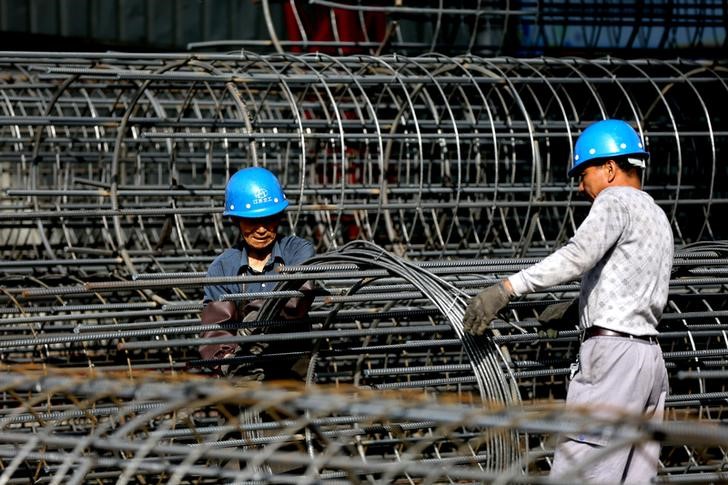By Tom Miles and Maytaal Angel
GENEVA/LONDON (Reuters) - G20 leaders will discuss steel overcapacity at this week's summit in Germany, European officials said, as tensions rise over U.S. President Donald Trump's plan to use a Cold War-era law to restrict steel imports for national security reasons.
Trump launched an investigation into the matter in April, in a move that diplomats and trade experts say risks undermining the global rules-based trading system and sparking retaliatory action around the world in products beyond steel.
The White House confirmed last week Trump plans to use the premise of the probe as a catalyst to demand action by the Group of 20 leaders to reduce excess capacity in steel, the second
biggest industry in the world after oil and gas.
The U.S. recommendation on possible new tariffs will be released some time after the G20 summit, which starts on Friday. The U.S. is conducting a similar study into the case for aluminium tariffs.
While tariffs on both products would be aimed primarily at China, U.S. allies fear they will bear the brunt of the measures because Chinese steel exports are already largely subject to U.S. restrictions and Canada and Mexico are likely to be exempt.
Also, invoking national security is all but taboo at the World Trade Organisation, the arbiter of international trade rules, because it is largely seen as a way to wage economic warfare by citing arbitrary defence concerns.
The European Union has already promised to retaliate if it is hit by U.S. steel tariffs.
Moreover, trade diplomats fear U.S. security-based tariffs on steel would widen cracks in the global trading order, after Saudi Arabia, Bahrain and the United Arab Emirates cited national security at the WTO last week to justify their economic boycott of Qatar.
Qatar has threatened legal action. Its WTO representative Ali Alwaleed Al-Thani said a national security claim was not a "free pass" and would need testing in court.
WTO Director General Roberto Azevedo told Reuters it would be concerning to see countries making national security demands within the WTO's dispute settlement system, the global trade court for the its 164 members.
"That, I think, is a very sensitive course of action," Azevedo said.
William Reinsch, a fellow at the Stimson Centre said if the threat of tariffs are used to pressure members of the G20's forum on steel overcapacity - set up last year - to tackle the problem, a good outcome could yet prevail.
He warned however, that a broad U.S. claim to national security would put global trade on a slippery slope.
"It just opens the door to everyone else to do same thing, not just on steel," Reinsch said.
"The next one that comes up is food - there's already a debate on food security in number of countries - and then you start talking about agricultural protection, and then you really are unravelling big chunks of the trading system."

Policies that could fall under national security include China's new Cyber Security Act, which is under WTO scrutiny from Japan, South Korea, the United States and others; Ukraine's gas pipeline reforms; and Russia's trade restrictions on Ukraine.